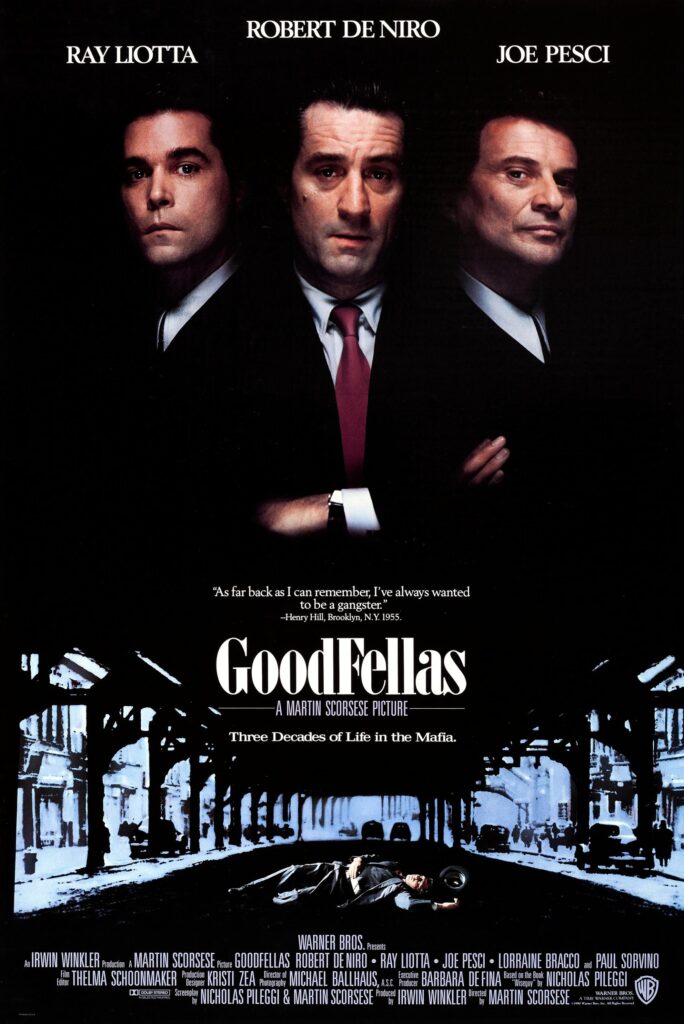The 1990 Oscars: When Goodfellas Was Snubbed by Dances With Wolves.

The 63rd Academy Awards, held in 1991, is often cited as one of the most controversial in the history of the Oscars, primarily due to the competition between Martin Scorsese’s “Goodfellas” and Kevin Costner’s “Dances With Wolves.” While both films are significant in their own right, the decision to award “Dances With Wolves” over “Goodfellas” in several key categories, including Best Picture and Best Director, has sparked debates among critics and cinephiles regarding the Academy’s preferences and the long-term impact and value of both films.
The Masterpiece That Was “Goodfellas”
“Goodfellas,” directed by Martin Scorsese, is a film that has been universally acclaimed for its gritty realism, complex characters, and innovative storytelling. Based on the true-crime book “Wiseguy” by Nicholas Pileggi, the film offers an unflinching look at the rise and fall of mobster Henry Hill and his associates over several decades. Scorsese’s direction, combined with sharp editing, memorable performances, and a dynamic use of music, created a cinematic experience that was both exhilarating and deeply human. The film’s influence on the genre and cinema as a whole has been profound, with many considering it not only one of Scorsese’s best works but also one of the greatest films ever made.
The Win That Shocked Hollywood
“Dances With Wolves,” directed by and starring Kevin Costner, took home the Oscars for Best Picture and Best Director, among others. The film, a sweeping epic set during the American Civil War, was praised for its beautiful cinematography, portrayal of Native American cultures, and ambitious scope. However, critics have argued that while visually stunning, the film’s narrative and character development lack the depth and complexity found in “Goodfellas.” Over time, “Dances With Wolves” has been critiqued for its simplistic and somewhat idealized portrayal of Native American life, leading some to question its lasting value and relevance.
The Aftermath and Reevaluation
The decision to award “Dances With Wolves” over “Goodfellas” in 1991 has been a focal point for discussions about the Oscars’ tendency to favor certain types of films over others. “Goodfellas” was seen as a groundbreaking work that offered a gritty, unromanticized look at the mafia, marking a departure from the glamorized portrayals common in earlier films. Its loss to “Dances With Wolves” was perceived by some as the Academy’s reluctance to embrace more challenging, unconventional narratives.
In the years since the awards, “Goodfellas” has continued to be celebrated for its artistic achievements and influence, while “Dances With Wolves” has faced more critical scrutiny. The debate is not merely about the merits of these two films but also about the criteria used by the Academy to judge artistic excellence. Some argue that the Oscars often reflect a preference for more traditional, sweeping epics over films that challenge viewers or explore darker themes.
Reflecting on the Legacy of Both Films
Despite the controversy surrounding the 1991 Oscars, both “Goodfellas” and “Dances With Wolves” have contributed significantly to the cinematic landscape. “Goodfellas” has been lauded for its realistic portrayal of the mafia and is frequently cited as one of the greatest films in the crime genre. On the other hand, “Dances With Wolves” played a role in rekindling interest in Westerns and has been credited with bringing attention to the stories of Native Americans, despite its later criticisms.
The debate over their respective merits and the decision of the Academy Awards that year underscores the subjective nature of evaluating art and the impact of cultural and societal trends on these evaluations. While “Goodfellas” may have been overlooked by the Oscars in 1991, its enduring legacy and influence affirm its status as a cinematic masterpiece, illustrating that true artistic value cannot always be measured by awards alone.




